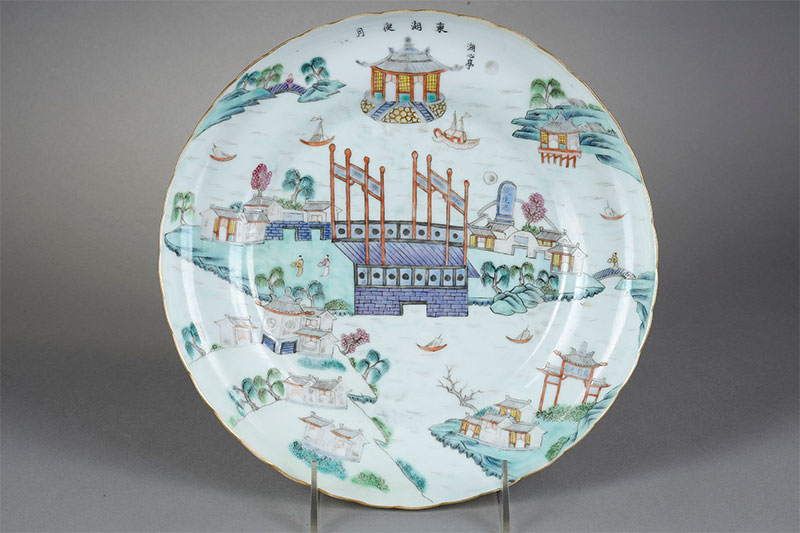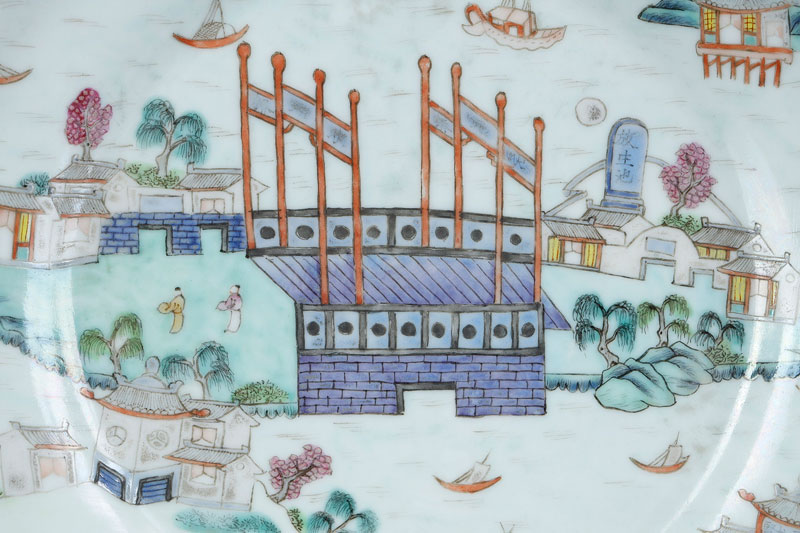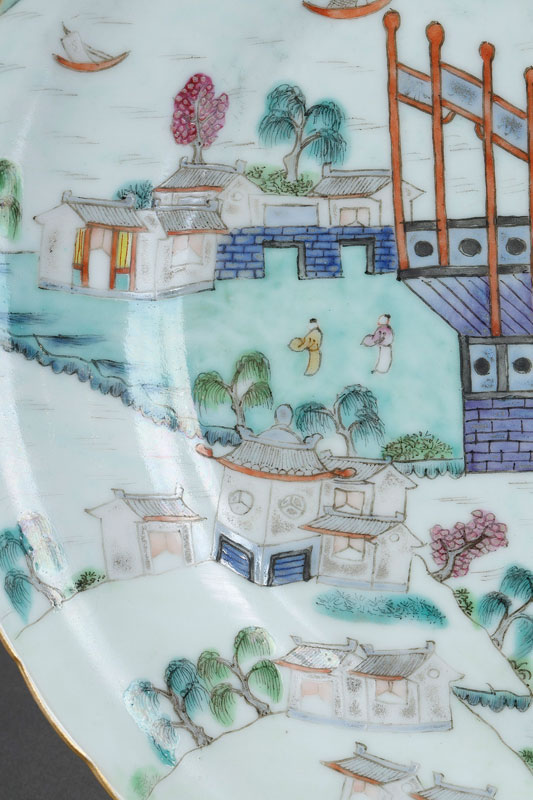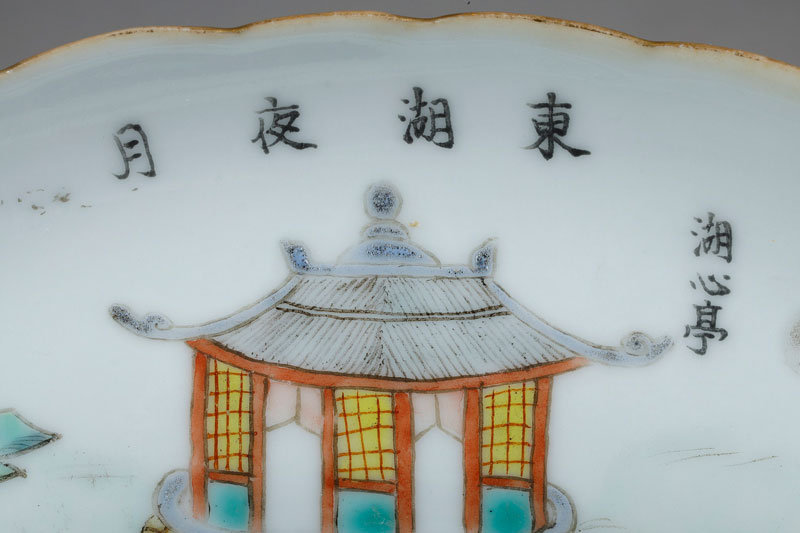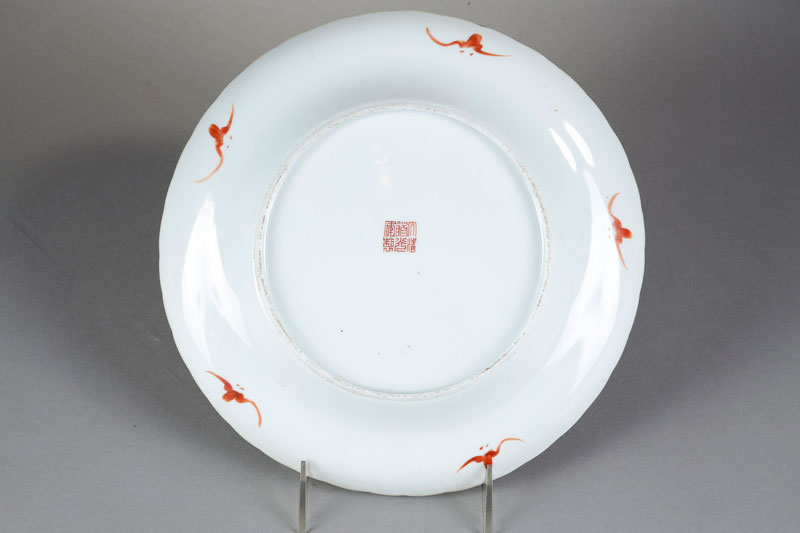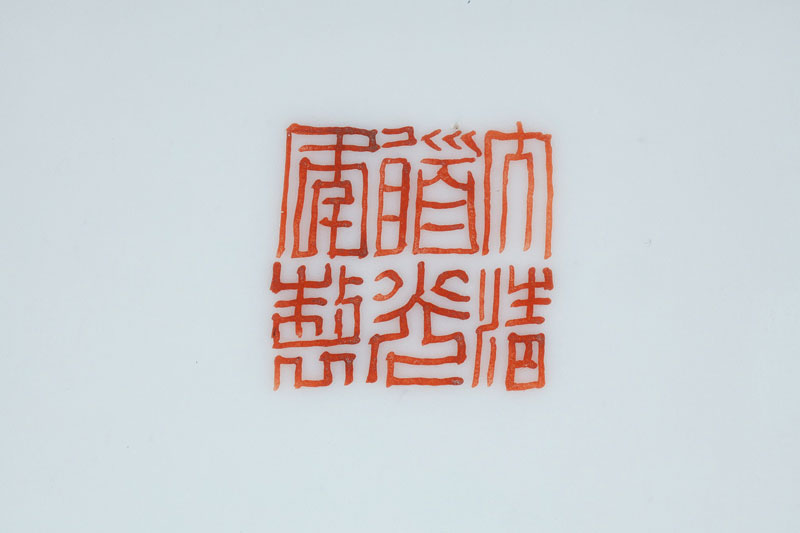Porcelain plate in Famille Rose enamels decorated with a landscape
- Porcelain and famille rose enamels
Description
This plate features a lakeside landscape decorated with famille rose enamels. It depicts islets with pavilions, houses and bridges linking the islands together. Some boats sail on the waves, and some characters walk on the land, cringing life to this landscape. It depicts an alliance of the nature and architectural elements.
In the center, the main subject of this landscape is a fortified bridge that links two islets. It is surrounded by houses and a Buddhist temple to its right. This temple is complemented by a pond, distinguished by the inscription fangsheng chi, which in China refers to an artificial Buddhist pond subordinate to the temple. The islets are depicted in ascending perspective, a canonical Chinese standards of landscape representation, highlighting the fortified bridge as an example of the Qing’s ability to master nature in hostile environments.
At top right, a temple on stilts and at top center, a floating pavilion display the architectural technique of the period. Inscriptions at the top center indicate the names of the place: “月夜湖東” (Moonlit Eastern Lake) and “湖心亭” (Huxin Pavilion). This landscape is inspired by a real place, the East Lake, located in China’s Jiangxi province. This lake is known for its islets, whose beauty inspired ancient Chinese poets from the Tang and Song dynasties.
Porcelain plate in Famille Rose enamels decorated with a landscape
- Porcelain and famille rose enamels
Discover more Porcelain
Return to the collection
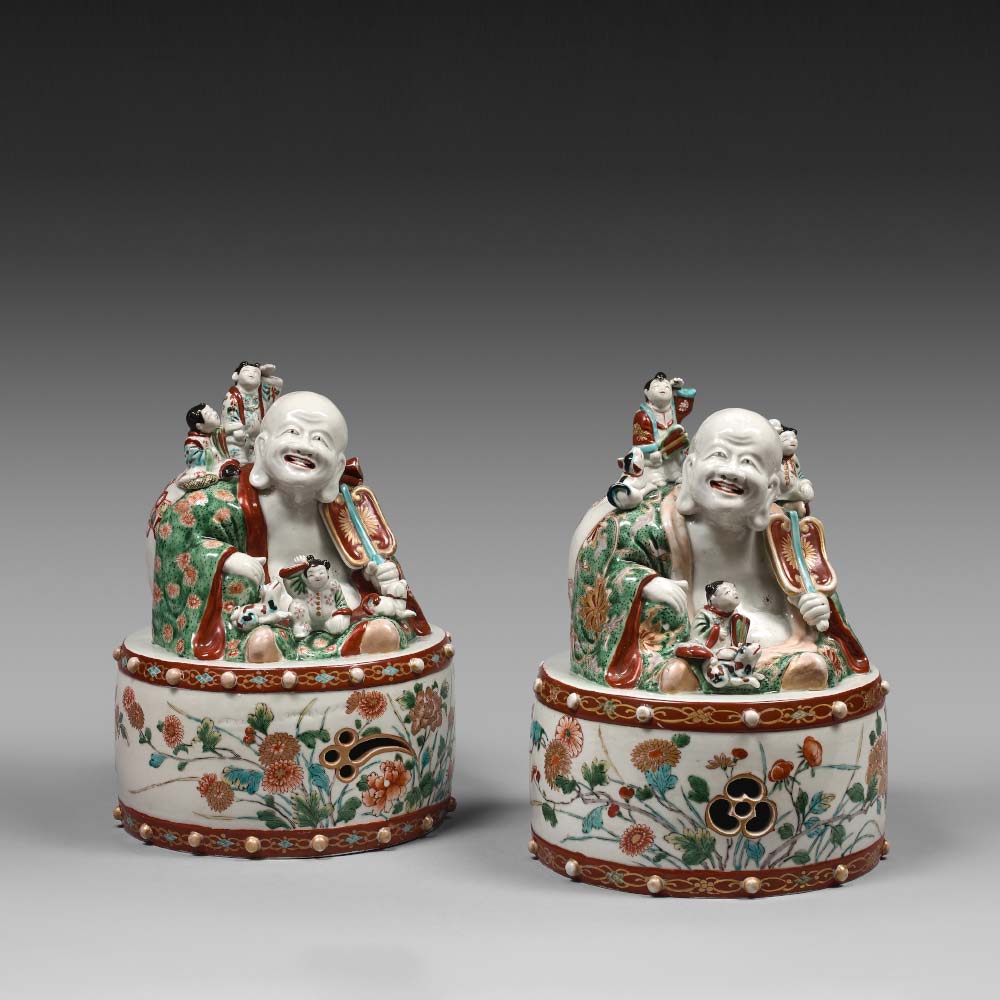
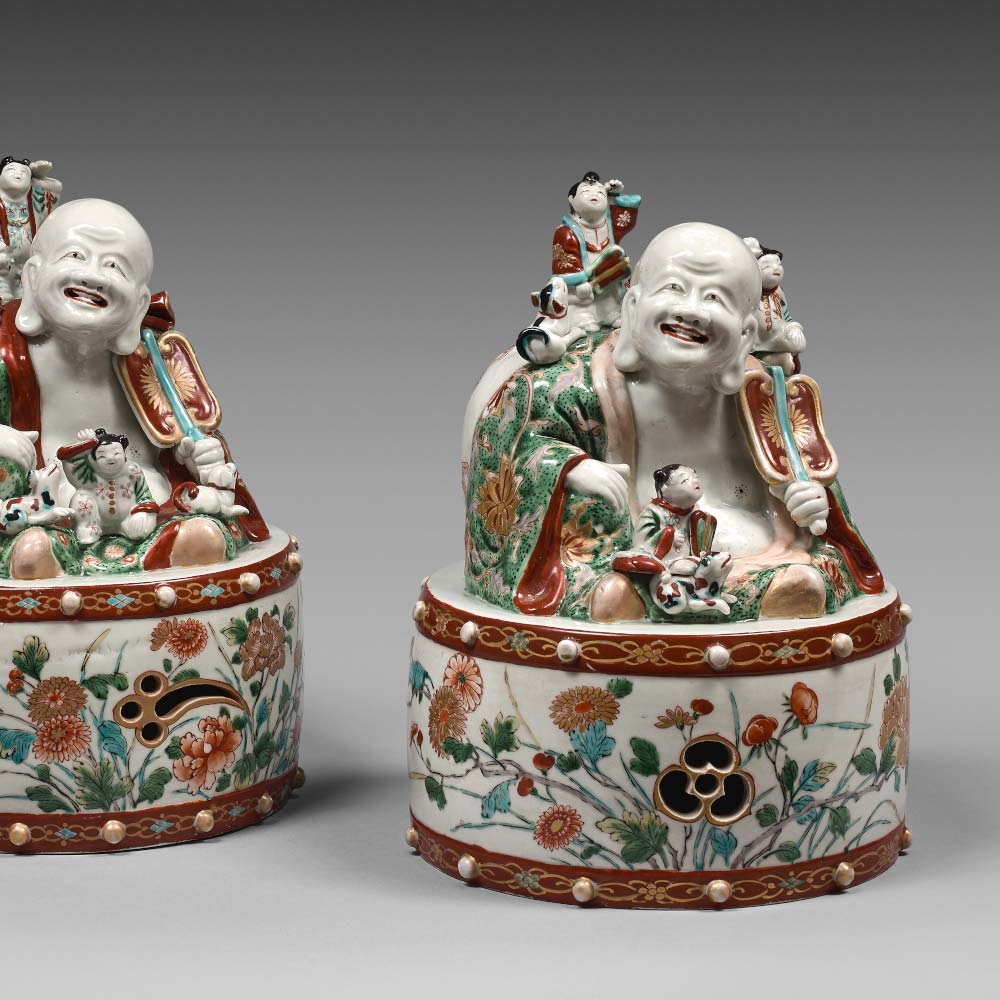
A pair of porcelain Putai figures
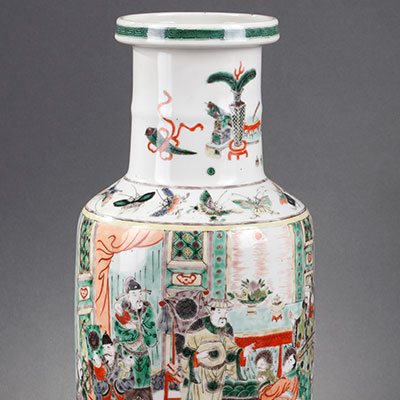
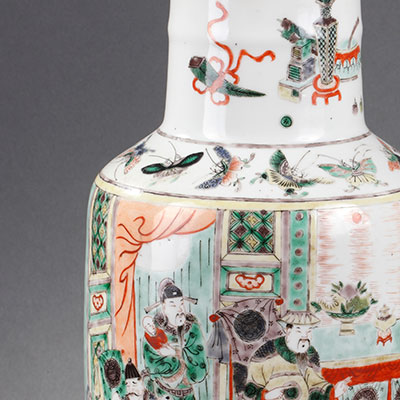
A famille verte « official scene » rouleau porcelain vase
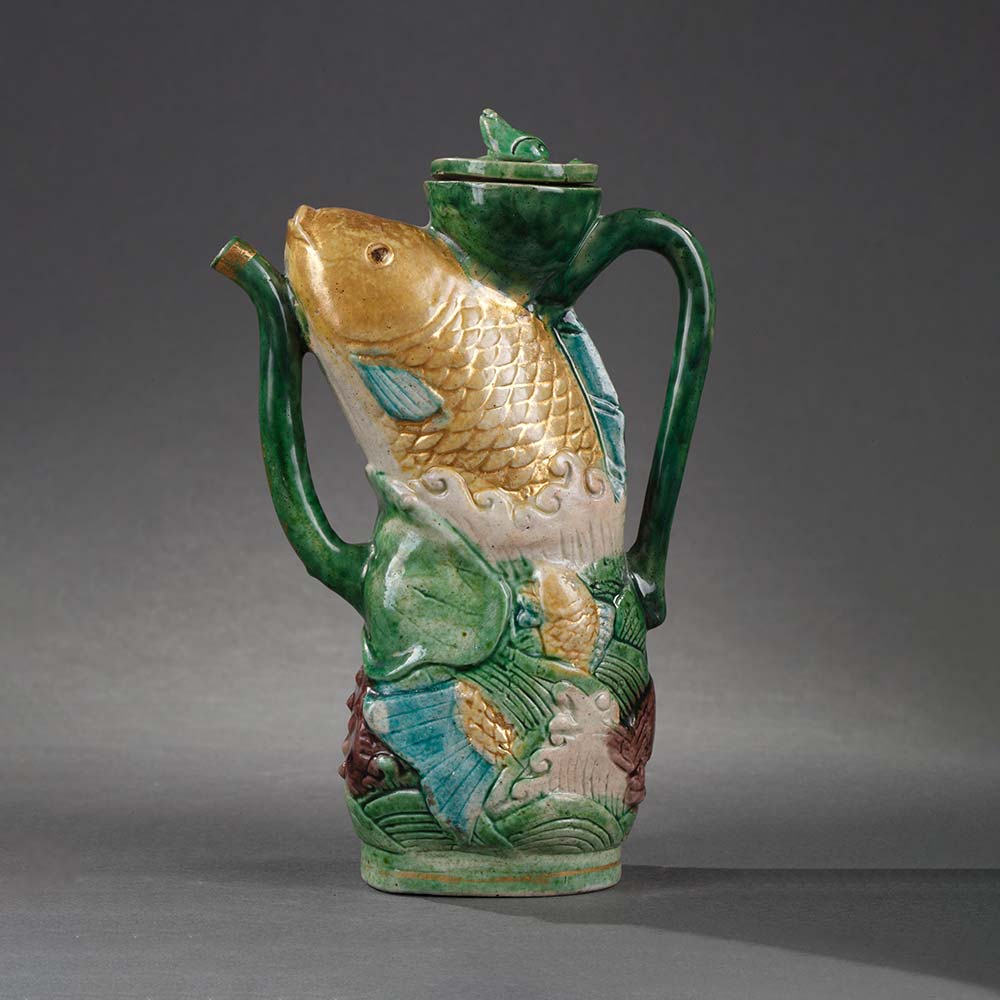
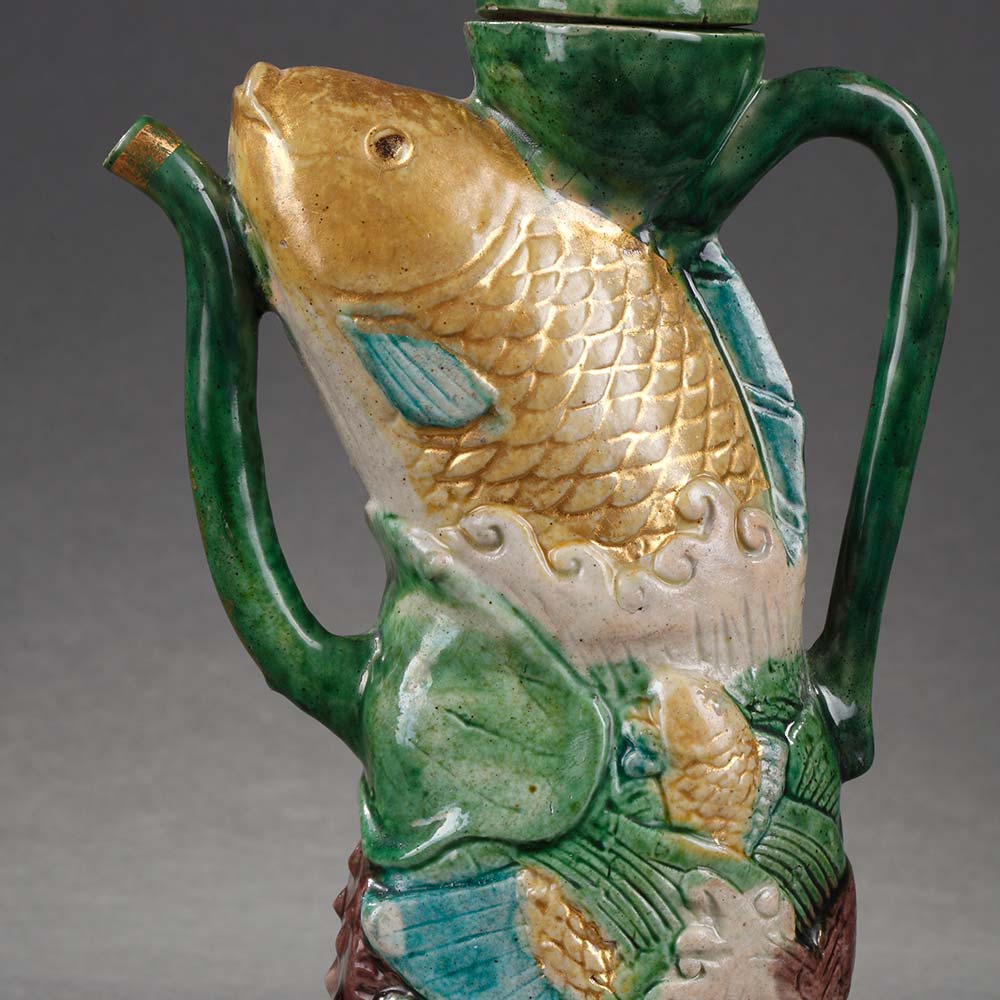
An ewer in the form of a carp decorated in enamels on the biscuit


A pair of small rouleau vases decorated with birds flying among flowers










